Posted on 12/11/2024

Fleet maintenance is often perceived as an additional expense, but it's actually a smart investment that can save you money in the long run. In this article, we'll explain the economic benefits of fleet maintenance and how it contributes to significant cost savings over time. The True Cost of Neglect Neglecting fleet maintenance may seem like a cost-saving measure in the short term, but it can lead to a myriad of expensive problems down the road. From unexpected breakdowns and significant repairs to vehicle downtime and lost productivity, the financial consequences of neglecting maintenance can quickly escalate. Proactive vs. Reactive Maintenance One of the key principles of fleet maintenance is the distinction between proactive and reactive approaches. Proactive maintenance involves regularly scheduled inspections, servicing, and preventive measures to address potential issues before they escalate. On the other hand, reactive maintenance e ... read more
Posted on 10/23/2024
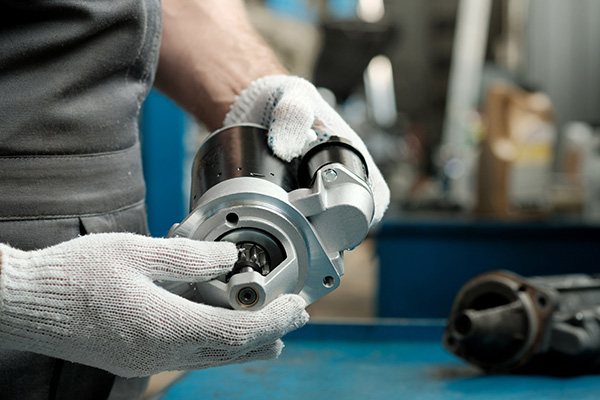
Starting your car is something most of us take for granted. You turn the key or press the button, and the engine roars to life. But what happens when you turn the key and nothing happens? One possible culprit could be a failing starter motor. The starter motor is responsible for cranking the engine, and when it goes bad, you’ll find yourself stuck with a vehicle that just won’t start. So, how can you tell if your starter motor is on its way out? For a video on how the electrical system and starter motor works, skip to the bottom of this page.1. The Engine Won’t Turn Over This is perhaps the most obvious sign. When you attempt to start your car and the engine won’t turn over, it's likely that the starter motor isn't working. You might hear a clicking noise, which is often a sign that the starter is trying but failing to engage. In some cases, you w ... read more
Posted on 9/10/2024
.jpeg)
You're cruising down the open road, the wind in your hair and the hum of the engine beneath you. But amidst this motion, a question lingers: When was the last time you treated your vehicle to a transmission flush? How Often Should You Flush Your Transmission? The first order of business in the transmission flush saga is deciphering the ideal frequency for this maintenance procedure. While opinions may vary among experts, a general consensus suggests that a transmission flush is typically recommended every 30,000 to 60,000 miles. However, it's essential to consult your vehicle's owner's manual and consider factors such as driving habits, terrain, and the age of your vehicle when determining the appropriate interval for a transmission flush. The Importance of Transmission Flush Now, let's shine a spotlight on the significance of a transmission flush in maintaining the health and longevity of your vehicle's transmission s ... read more
Posted on 8/15/2024
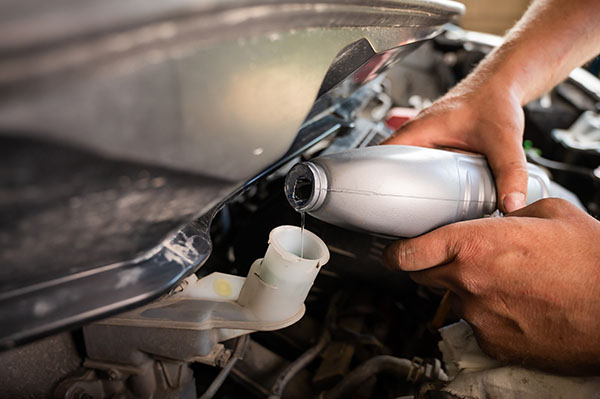
Brake fluid is a hydraulic fluid that transmits the force from your foot on the brake pedal to the brake components, enabling your car to stop when needed. Without adequate brake fluid, your brakes wouldn't function correctly, putting you and your passengers at risk. What is a Brake Flush? A brake flush involves removing the old, contaminated brake fluid from the braking system by flushing it out with fresh fluid. Over time, brake fluid can accumulate moisture, dirt, and debris, compromising its effectiveness. A brake flush helps maintain the integrity of the braking system by ensuring that the fluid remains clean and free of contaminants. Importance of Regular Brake Flushes Regular brake flushes are essential for several reasons: They help prevent brake fluid contamination, which can lead to brake fade or even brake failure. Flushing the brake system removes any air bubbles that may have formed, ensuring that the brakes feel firm and re ... read more
Posted on 6/13/2024
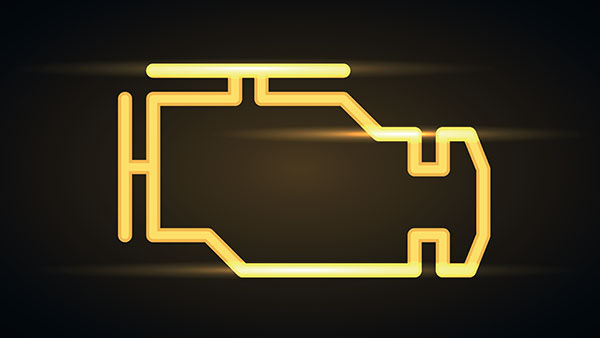
You're cruising down the highway on your way back home, when suddenly, the dreaded check engine light illuminates on your dashboard. It's a common scenario that leaves many drivers feeling anxious and uncertain. But what does a free check engine light scan really mean? And do you still need to have a shop diagnose your problem? Check Engine Light - Decoding the Signal The check engine light serves as a warning system, alerting drivers to potential issues with their vehicle's engine or emissions system. When this light comes on, it's essentially your car's way of saying, "Hey, something's not right." However, it's important to note that the check engine light doesn't pinpoint the exact problem; it simply indicates that there's a fault code stored in the vehicle's onboard diagnostic system. Free Check Engine Light Scan - What Does It Really Mean? Many auto parts stores and repair shops offer fr ... read more
Posted on 5/31/2024

Why Does My Car A/C Feel Warm? Imagine a sweltering summer day, and you hop into your car, craving the soothing relief of air conditioning. You turn the A/C on, only to be greeted by warm, lackluster air instead of the refreshing cool breeze you anticipated. Frustration sets in, and you wonder, "Why is my A/C blowing warm air?" Today, we will explore the possible reasons behind this unusual A/C behavior. Low Refrigerant Levels: The blood of your A/C system lies in the refrigerant, a vital coolant responsible for cooling the air. Low refrigerant levels might be the culprit if your A/C blows hot air. Leaks in the system can cause refrigerant loss over time, hampering your A/C's ability to chill the air. Faulty Compressor: The air conditioning system's compressor is akin to the heart of the A/C system, as it pressurizes the refrigerant, enabling the cooling process. If the compressor malfunctions or fails, warm air will be all your A/C can muster. Clogged Condenser ... read more
Posted on 5/7/2024
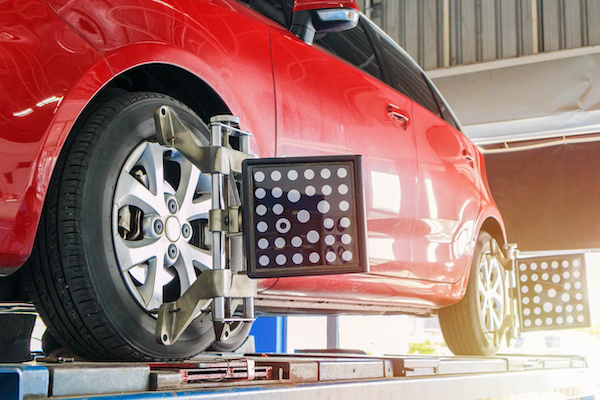
Have you ever wondered why your car seems to pull to one side, or why your tires wear unevenly? The answer may lie in your vehicle's alignment. Proper wheel alignment is essential for maintaining optimal handling, tire wear, and overall vehicle performance. The Importance of Alignments Alignment refers to the adjustment of a vehicle's suspension components to ensure that all four wheels are positioned correctly relative to each other and the road surface. Proper alignment helps your car maintain straight-line stability, improves handling and cornering ability, and reduces tire wear. Without proper alignment, your vehicle may experience issues such as uneven tire wear, steering pull, and decreased fuel efficiency. Proper Wear and Tear on Tires One of the most noticeable effects of poor alignment is uneven tire wear. When your wheels are not properly aligned, they exert uneven pressure on the tires, causing certain areas of the tread to wear down more quickly than others. Thi ... read more
Posted on 4/19/2024
.jpeg)
Ever stood by your car, staring at the sidewall of your tires, and wondered what those numbers and letters mean? You're not alone. These numbers aren't just random; they're the key to understanding crucial aspects of your tires, from size to load capacity. But fret not, we're here to decode this numerical puzzle for you. By the end of today's article, you'll be reading tire numbers like a pro, making tire shopping or maintenance a breeze. Understanding the Aspect Ratio The aspect ratio of a tire refers to the height of its sidewall in comparison to its width. For example, if the aspect ratio is 55, it indicates that the height of the tire is 55% of its width. Lower aspect ratios generally correspond to wider tires, which may result in improved handling and stability. Deciphering the Service Description At the end of the tire size sequence, you'll find a service description. This includes a number, representing the maximum load the tire can handle ... read more
Posted on 4/5/2024
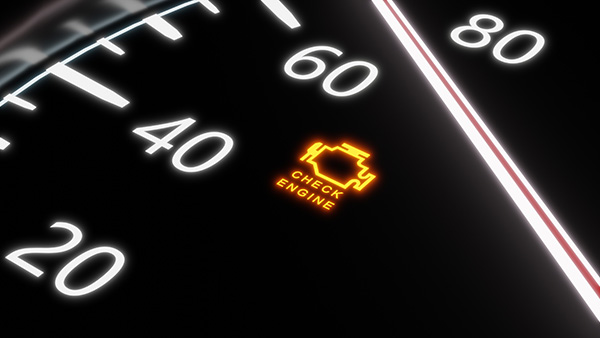
When the check engine light comes on while driving, does panic set in? Is it a minor issue, or could it spell trouble for your vehicle? Should you opt for a free scan or invest in a professional diagnosis? For a video on what the various vehicle warning lights mean, skip to the bottom of this page. What is The Check Engine Light For The check engine light serves as your vehicle's early warning system, indicating potential issues with the engine, transmission, or emissions system. When it illuminates, your car's onboard computer has detected a problem, prompting a diagnostic trouble code (DTC) to be stored in its memory. While the light itself doesn't pinpoint the exact issue, it signals the need for further investigation. The Risks of Ignoring the Check Engine Light Ignoring the check engine light might be tempting, but it can result in more severe and ex ... read more
Posted on 4/2/2024
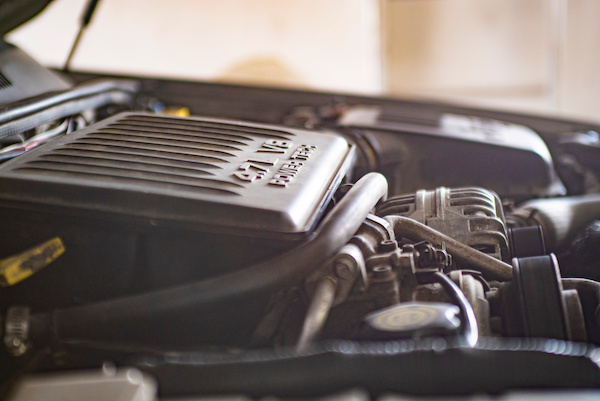
Check out the video below Engine Air Filter 101 Let's start with the basics - the engine air filter is a relatively humble part of your car's engine system, but its importance cannot be overstated. It's essentially a barrier that stands between the outside world and your engine, preventing contaminants like dust, dirt, leaves and debris from entering your engine's delicate inner workings. Why is it So Important?Clean Air, Happy Engine Your car's engine operates by mixing air with fuel and igniting this mixture to produce power. If the air entering the engine is filled with dirt and particles, these will contaminate the mixture, leading to incomplete burning and soot. If the particles are big or hard enough, they can damage the engine. The engine air filter ensures that only clean air reaches the engine, crucial for efficient combustion and overall engine health. Improved Fuel Efficiency When ... read more